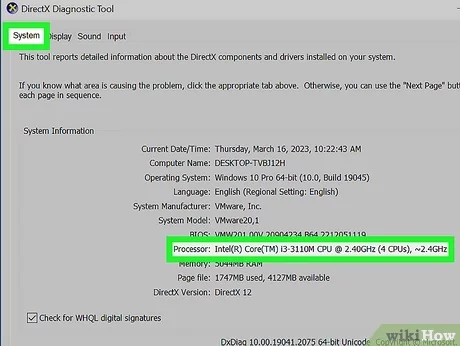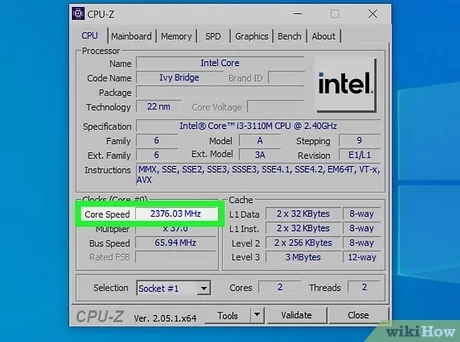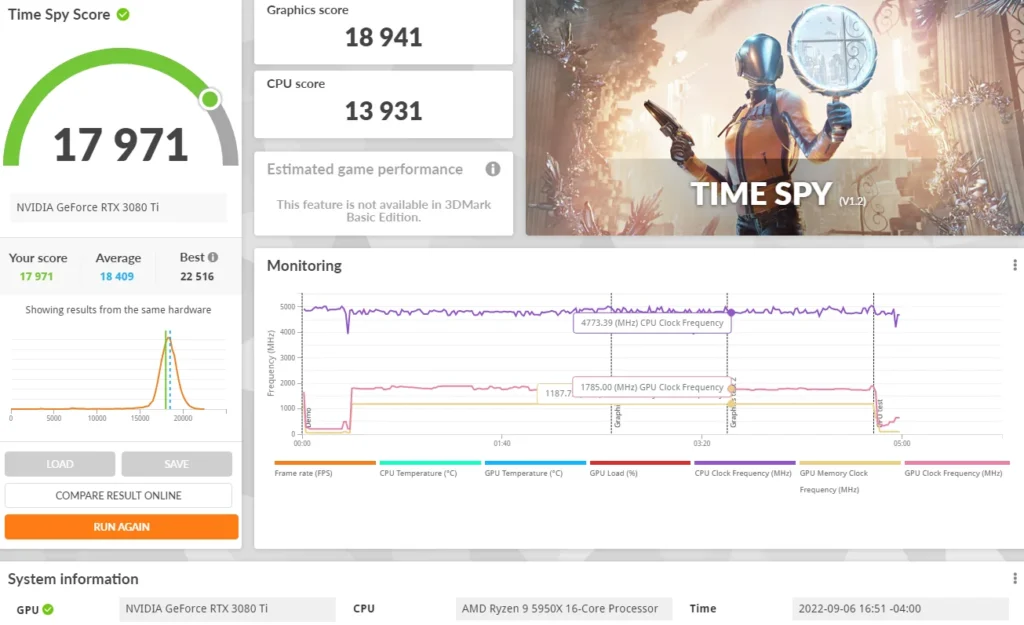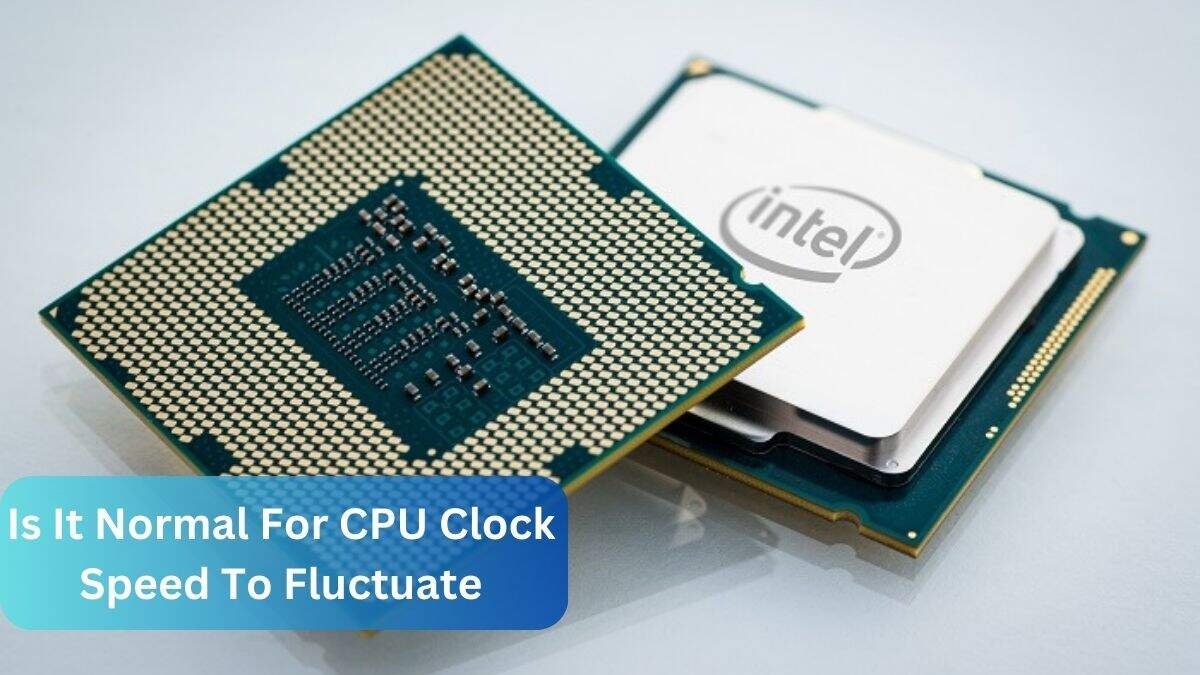From my personal experience, I’ve noticed that my CPU clock speed fluctuates a lot, especially when switching between tasks like gaming and browsing. This made me curious, and I learned that **it is normal for CPU clock speed to fluctuate** as the processor manages power and performance automatically.
Yes, it is normal for CPU clock speed to fluctuate. In order to maximize performance, modern CPUs modify their speed in response to workload, temperature, and power efficiency. These changes help the CPU run faster during heavy tasks and conserve energy when idle or under light use.
In this article, we’ll delve into the intricacies of CPU clock speed, explore why these fluctuations occur, and determine whether this behavior is normal or a cause for concern.
Table of Contents
Introduction:
CPU clock speed, often referred to as the heartbeat of your computer’s processor, plays a critical role in determining how fast your device can perform tasks. From simple web browsing to intensive gaming, clock speed influences the overall responsiveness and efficiency of your system. However, many users often notice that their CPU clock speed doesn’t remain constant, leading to the question: Is it normal for CPU clock speed to fluctuate?
Understanding CPU Clock Speed: let’s Explore it!
A central processing unit’s clock speed, measured in gigahertz (GHz), is the quantity of cycles it can do in a second.Higher clock speeds generally mean faster processing, which translates to better performance for applications and multitasking.
However, clock speed is not fixed; it varies depending on numerous factors, including workload demands, power settings, and thermal conditions.These fluctuations are a natural part of how modern processors operate, adjusting speeds dynamically to balance performance and energy efficiency. But the question remains:
Why Does CPU Clock Speed Fluctuate? Let’s find out!
1. Power Management and Energy Efficiency
Modern CPUs are designed with advanced power management features that adjust clock speeds based on current demands. This dynamic scaling conserves energy when full power isn’t required, extending battery life in laptops and reducing power consumption in desktops.

2. Thermal Conditions and Cooling Mechanisms
Temperature is a crucial factor in CPU performance. When a CPU heats up, it may reduce its clock speed to avoid overheating, a process known as thermal throttling. Efficient cooling systems help maintain optimal clock speeds, but minor fluctuations are still expected due to normal temperature changes.
3. Workload Demands and Dynamic Frequency Scaling
CPUs use technologies like Intel’s Turbo Boost and AMD’s Precision Boost to adjust clock speeds in real-time based on workload. When running demanding tasks, the CPU may temporarily increase its speed. Conversely, it will slow down during lighter tasks. This adjustment process is key to answering the question.
Read Most Important: Is Execution Time The Same As CPU Time – Detailed Overview!
Is It Normal For CPU Clock Speed To Fluctuate? Let’s see it!
Indeed, fluctuations in CPU clock speed are entirely typical.These fluctuations are a sign that your CPU is working efficiently, adjusting to the demands of different tasks while managing power and heat. Normal fluctuations occur within a defined range, but if clock speeds drop significantly or behave erratically, this could indicate potential issues.
Background processes, applications running in the background, and system updates can all cause minor fluctuations in CPU speed. Additionally, settings in your BIOS and power profiles can impact how aggressively your CPU adjusts its clock speed.
Common Scenarios of Clock Speed Fluctuation: let’s have a look!
- Gaming and Intensive Computing Tasks
When playing high-end games or performing video rendering, CPUs often ramp up their clock speeds temporarily to handle the increased demand. This is a typical scenario where fluctuations are expected and beneficial for performance. - Idle States and Low-Demand Scenarios
During periods of inactivity, CPUs will reduce their clock speed to save energy. This is particularly common in laptops, where battery conservation is prioritized. - Effects of Software Updates and System Maintenance
Software updates, especially those related to drivers and firmware, can temporarily cause fluctuations in clock speed as the CPU adjusts to new settings and optimizations.
When Should You Be Concerned About Clock Speed Fluctuations? Let’s find out!
While it’s generally normal for CPU clock speed to fluctuate, there are scenarios where such behavior may indicate a problem:

- Abnormal Fluctuations: Sudden drops or spikes outside the typical operating range can suggest overheating, faulty cooling, or power delivery issues.
- Overheating and Throttling: Consistent drops in speed under load may be a sign that your CPU is throttling due to inadequate cooling or dust-clogged fans.
- Performance Issues: If fluctuations cause noticeable slowdowns, it’s time to investigate further.
Read Most Important: Is CPU A Storage Device – A Complete Guide in 2024!
How To Monitor and Manage CPU Clock Speed:
To keep an eye on your CPU’s behavior, you can use monitoring tools like CPU-Z, HWMonitor, or your motherboard’s bundled software. These tools provide real-time data on clock speeds, temperatures, and voltages. Adjusting BIOS settings, updating drivers, and ensuring your cooling system is functioning correctly are all ways to manage fluctuations.
Is CPU Clock Fluctuation Normal at Idle?
Yes, CPU clock fluctuation at idle is normal. Modern CPUs adjust their speed based on the workload to save power and reduce heat.It is normal and anticipated for the CPU clock speed to fluctuate while your system is idle in order to save energy.
Is Variation in GPU Clock Speed Normal?
Yes, GPU clock speeds can fluctuate, especially when there’s no demanding task. GPUs adjust their speeds based on the workload to maintain performance and efficiency. Fluctuating speeds help manage power consumption and keep temperatures in check.
Is it Normal for CPU Clock Speed to Fluctuate on Windows?
Yes, it’s normal for CPU clock speeds to fluctuate in Windows. The operating system dynamically adjusts the CPU speed based on current tasks, power settings, and thermal conditions. This helps maintain a balance between performance and energy efficiency.

CPU Clock Speed Jumping While Idle:
A jumping clock speed while idle is common and usually nothing to worry about. It occurs because the CPU is quickly switching between different power states, adjusting its speed to handle background tasks while still conserving energy.
CPU Idle Clock is Fluctuating So Much:
When a CPU is idle, clock fluctuations are typical as the processor manages power efficiently. It lowers its speed when full power isn’t needed and ramps up when required. This keeps your system responsive while saving energy.
Read Most Important: Is CPU Hardware or Software – Ultimate Guide In 2024!
Is Variation in GPU Clock Speed Normal?
Heavy fluctuations in clock speed during idle are often normal. Modern CPUs are designed to rapidly change speeds depending on the current task load, even when idle, to maximize performance and minimize power usage.
CPU Insane Clock Speed Fluctuation – Is This Normal?
While extreme fluctuations might seem concerning, they’re often normal. CPUs dynamically adjust their clock speeds to match workload demands. As long as the system performs well and temperatures stay within safe ranges, these fluctuations are typically harmless.
CPU Clock Speed Fluctuating Between 1.5 to 3.6 MHz, Mostly Stuck at 1.5 MHz:
Such fluctuation usually indicates the CPU is managing its power efficiently. The lower clock speed suggests minimal demand on the processor, which is a normal response to save energy and reduce heat generation during light workloads.
Are Frequently Fluctuating Clock Speeds Normal?
Frequent clock speed fluctuations are a normal aspect of modern CPUs. These adjustments help balance performance, power consumption, and thermal management. The fluctuations happen rapidly and are an inherent part of CPU operation.
Should CPU Clock Speed Fluctuate Like This?
Yes, CPU clock speed is designed to fluctuate. These fluctuations allow the processor to provide the right amount of power based on current tasks, enhancing efficiency and performance while keeping temperatures low.
Why Does My CPU Clock Speed Fluctuate Up and Down Running IntelBurnTest?
Running stress tests like IntelBurnTest can cause CPU speeds to fluctuate as the processor manages heat and power. It’s a normal reaction to intense loads and part of the CPU’s protection mechanisms to prevent overheating.
Is This Normal for My CPU Multiplier and Speed While It’s Idling? (I7 – 9700k)
Yes, especially with CPUs like the i7-9700k, it’s usual for your CPU multiplier and speed to fluctuate while you’re idle.This behavior helps conserve energy and keep temperatures down by adjusting performance based on current demand.
Is It Normal for My CPU to Always Run at High GHz?
If your CPU runs at high GHz constantly, it may be due to high-performance settings or background tasks. While it’s not dangerous, continuous high speeds can generate more heat. Adjusting power settings might help lower the clock speed when not needed.
My CPU Speed Is Fluctuating A Lot:
Frequent speed fluctuations are common and help optimize the CPU’s performance. These changes occur as the CPU manages power consumption, ensuring that it only uses as much speed as necessary based on the current workload.
The CPU speed varies or seems to be slower than anticipated:
If the CPU speed seems slower than expected, it could be due to power-saving settings or low system demand. The CPU often slows down to conserve energy, ramping up when more processing power is required.
Is It Normal if CPU Keeps Jumping from 1400 to 3500 MHz etc.?
Yes, this is normal. CPUs adjust their speeds rapidly to balance performance and power usage. A jump from 1400 to 3500 MHz shows the processor is working efficiently to match the system’s needs at any given time.
5900x Clock Speed Fluctuates When Gaming:
Fluctuating clock speeds during gaming are normal and help optimize your CPU’s performance. The processor adjusts its speed to balance power and temperature, ensuring smooth gameplay without unnecessary overheating.
If the CPU is not overclocked, why does its frequency fluctuate over time? Can You Take Any Action Regarding It?
CPU frequency can vary even without overclocking due to power management features. These variations help save energy and control heat. You can set the power plan to “High Performance” for more consistent speeds, but fluctuations will still occur naturally.
When the CPU is used more, is it normal for the CPU clock speed to decrease?
It can happen if the CPU is thermally throttling to prevent overheating. While high CPU usage typically increases clock speeds, thermal limits may cause it to decrease to protect the processor.
Variations in Voltage and Core Clock Speed Following the Application of Fresh Thermal Paste:
After applying new thermal paste, you might notice changes in clock speed and voltage as the CPU adapts to improved thermal conditions. This behavior is generally normal as the system adjusts to maintain optimal temperatures.
CPU Speed Fluctuates Between 1197 and 3093 MHz:
Fluctuations between such speeds are common as the CPU adjusts to varying demands. When the workload is low, the speed reduces to save power, and when needed, it ramps up to provide more processing power.
Read Most Important: Why Does My CPU Fan Start and Stop? A Comprehensive Guide 2024!
FAQs:
1. Is CPU Clock Speed Supposed to Fluctuate?
Yes, CPU clock speed is supposed to fluctuate. It adjusts based on workload to balance performance and energy efficiency.
2. Why Does My CPU Clock Speed Keep Changing?
Your CPU clock speed changes to manage power and heat For hard activities, it accelerates and decelerates to conserve energy.
3. Is It Normal for CPU Usage to Fluctuate?
Yes, CPU usage fluctuates as it adjusts to different tasks. This helps optimize performance and manage system resources.
4. What Should My CPU Clock Speed Be?
Your CPU clock speed varies by model and usage. It’s normal for it to range based on current tasks and system demands.
5. Is CPU Speed Supposed to Change?
Yes, CPU speed changes as needed to handle different workloads. This helps balance performance and power consumption.
Conclusion
fluctuating CPU clock speeds are a normal and essential part of modern processors. Depending on the workload at hand, they assist in balancing energy efficiency and performance. If you notice extreme fluctuations or performance issues, it might be worth checking your system’s cooling and power settings.
Read Most Important:

[…] Read Most Important: Is It Normal For CPU Clock Speed To Fluctuate: A Complete Guide! […]
[…] Read Most Important: Is It Normal For CPU Clock Speed To Fluctuate: A Complete Guide! […]